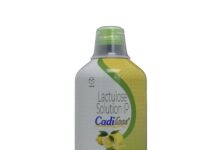Mumbai, May 22, 2014 – The Bhabha Atomic Research Centre (BARC) under the Department of Atomic Energy, Government of India through its Centre for Incubation of Technologies (BARCIT) has signed a MoU with M/s Veena Industries, Nagpur for incubation of technology for “Biodegradable and Edible films for Food and Pharmaceuticals Packaging” today at Trombay, Mumbai.
The biodegradable edible films for food and pharmaceutical packaging from natural resources have been developed by BARC for overcoming the disadvantages of plastic packaging materials. The films have comparable mechanical and barrier properties to commercially used PVC cling films.
Scale up of this technology will be carried out at the incubation centre of BARC with M/s Veena Industries, Nagpur to develop products as per market requirement. While scaling up this technology, emphasis will be given to develop economically viable and user friendly product with improvement in the mechanical and barrier product of the film. A suitable dose of Gamma radiation will be given to the raw material to improve its mechanical and barrier properties such as tensile strength and water vapour transmission rate. BARC will provide its technical know how and infrastructure, whereas, Veena industries will provide market search, manpower and material at its own cost for the incubation plan. Finally, the technology developed will be licensed to Veena Industries.
 It may be noted that Packaging constitutes the largest market for plastics, amounting to over 12 million tons per year. Synthetic packaging materials are made up of petroleum based products which are non-biodegradable and non-renewable. Large scale use of such packaging material is thus a major environmental concern. This has led to a search for packaging material that are biodegradable as well as recyclable. One of the alternative is the development of packaging material from biopolymers that are biodegradable, non-toxic and from completely renewable resources. Major limitation in the use of biopolymers as packaging materials are their relatively poor mechanical and barrier properties such as tensile strength and water vapour transmission rate as compared to their non-biodegradable counter-parts.
It may be noted that Packaging constitutes the largest market for plastics, amounting to over 12 million tons per year. Synthetic packaging materials are made up of petroleum based products which are non-biodegradable and non-renewable. Large scale use of such packaging material is thus a major environmental concern. This has led to a search for packaging material that are biodegradable as well as recyclable. One of the alternative is the development of packaging material from biopolymers that are biodegradable, non-toxic and from completely renewable resources. Major limitation in the use of biopolymers as packaging materials are their relatively poor mechanical and barrier properties such as tensile strength and water vapour transmission rate as compared to their non-biodegradable counter-parts.
























